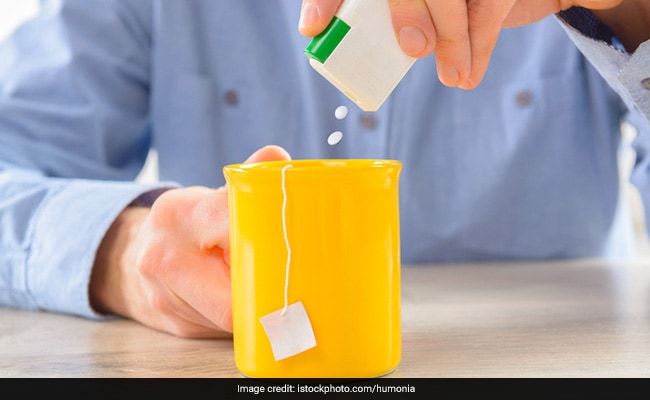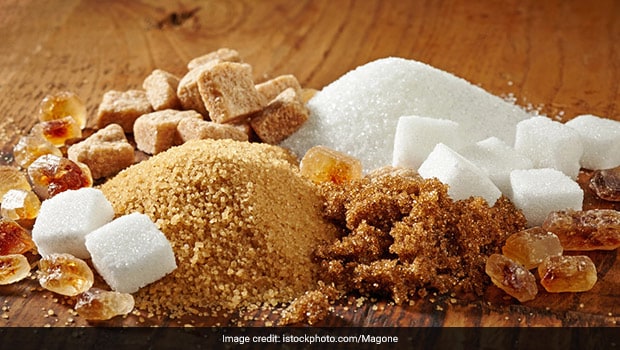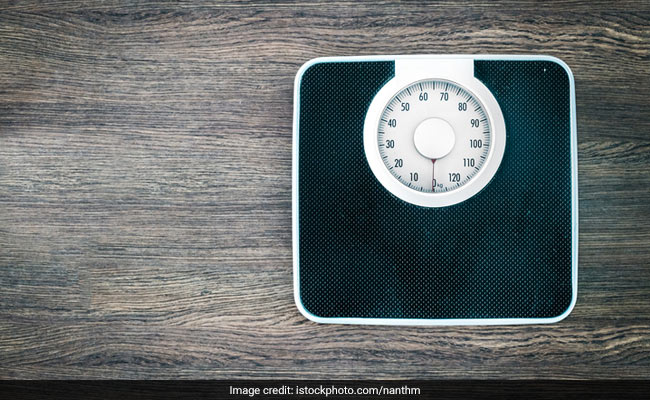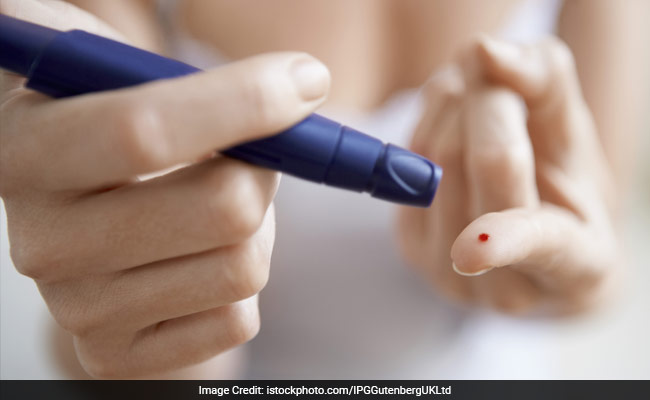A recent study states that artificial sweeteners may worsen symptoms of Crohn's disease.

Artificial sweeteners can be considered good for weight loss
HIGHLIGHTS
- Processed foods contain artificial sweeteners
- Artificial sweeteners have very less calories
- They can help in aiding weight loss
Artificial sweeteners work in a way that they impart a sweet flavour to food/drinks minus the calories of sugar. Experts have advised cautious use of artificial sweeteners as an effective replacement for sugar among diabetics and people suffering from obesity, metabolic syndrome, etc. However, these artificial sweeteners may increase symptoms of Crohn's disease, according to a recent study published in the Inflammatory Bowel Diseases journal. Sucralose in artificial sweeteners might have the capability to worsen gut inflammation in animals with Crohn's disease.
The study also found that ingesting artificial sweeteners might increase activity of enzyme myeloperoxidase in mice suffering from Crohn's disease. Myeloperoxidase is responsible for attacking the microorganisms that cause diseases in the body.
Also read: All You Need To Know About Crohn's Disease
What is Crohn's disease?
Crohn's disease is a condition which causes inflammation in the digestive tract. It makes people suffer from severe diarrhoea, pain in the abdomen, fatigue, bloody stools and unexplained weight loss.
Currently, there's no cure for Crohn's diseases. Therapies might help in reducing symptoms and remission in the long term.

The study also suggested that people suffering from Crohn's disease should take artificial sweeteners with caution. Researches have said that they induce bacteria in the gut and immune cell reactivity in the gut wall. This can result in inflammation.
Also read: 8 Foods That Contain Alarming Amounts Of Sugar
Uses for artificial sweeteners
Apart from adding these in beverages like tea and coffee, artificial sweeteners are widely added in products like processed food, canned foods, packed drink mixes, dairy products and lots of other foods and beverages.
Health benefits of artificial sweeteners
The two most popular reasons which can be credited to the use of artificial sweeteners is that they can be used for controlling weight and diabetes. Also, they do not contribute to tooth decay of cavities, like other sweet products.
1. Weight control
Artificial sweeteners come with virtually very less calories. On an average, 1 gm of regular sugar contains 4 calories. 1 teaspoon of sugar is almost 4 gms. Thus, for people who are on a weight loss expedition or are working towards sustaining their weight, artificial sweeteners or products with artificial sweeteners should be the preferred option.

Also read: The Ultimate Diet Chart To Lose Weight, Not Health
2. Diabetes
Artificial sweeteners are popular among people suffering from diabetes. Since they do not contain carbs, they do not contribute to a rise in blood sugar levels.
However, artificial sweeteners must be consumed only under the supervision of an expert.

Possible health hazards caused by artificial sweeteners
1. They trick your taste buds
Artificial sweeteners are made from a herb which many times sweeter than sugar. Being exposed to the taste of artificial sweeteners for too long can make your test buds less reception to natural sources of sweet foods like fruits.
2. They trick your gut
Experts say that artificial sweeteners might confuse your gut since they are very low in calories but very sweet. While they signal the gut that you are eating a food which is high in calorie, they actually are extremely low in calories. In turn, the gut is unable to utilise food efficiently and leads to a cascading effect which can hamper the hunger signals in your body.
3. They are genetically modified
Sucralose, aspartame, erythritol and neotame are all extracted from genetically modified crops. They are modified genetically so as to resist or produce pesticides.
4. They might make you overeat
It is because the way artificial sweeteners feel in your mouth that they can make you overeat. Foods that are rich in fat and sugar will feel sweet and dense in your mouth. They signal your brain that you are eating foods high in calories. But the consistency of artificial sweeteners is much thinner and thus isn't that satisfying. This might increase your cravings and make you overeat.
Disclaimer: This content including advice provides generic information only. It is in no way a substitute for qualified medical opinion. Always consult a specialist or your own doctor for more information. NDTV does not claim responsibility for this information.
DoctorNDTV is the one stop site for all your health needs providing the most credible health information, health news and tips with expert advice on healthy living, diet plans, informative videos etc. You can get the most relevant and accurate info you need about health problems like diabetes, cancer, pregnancy, HIV and AIDS, weight loss and many other lifestyle diseases. We have a panel of over 350 experts who help us develop content by giving their valuable inputs and bringing to us the latest in the world of healthcare.













